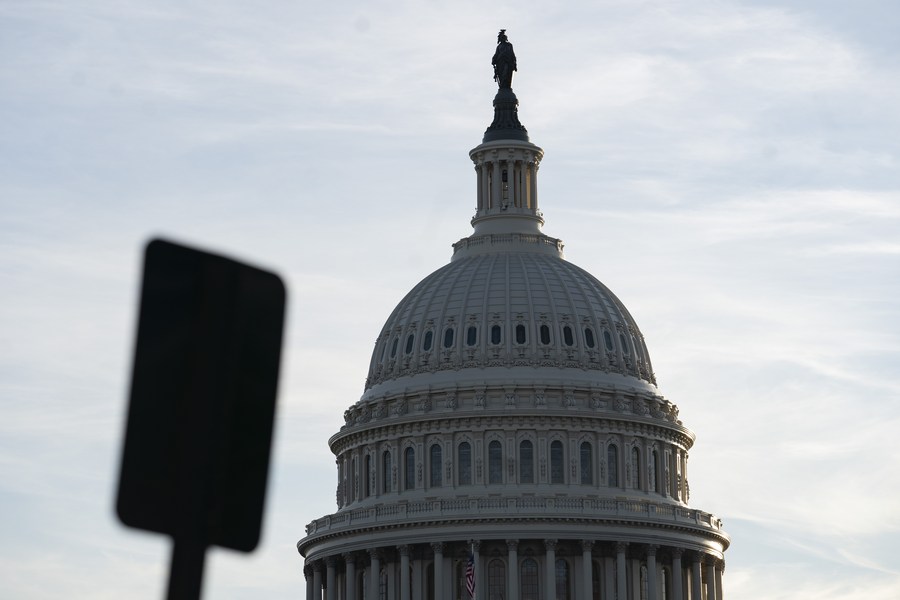Suppressing China won't help U.S. tech vitality

Photo taken on June 17, 2021 shows the U.S. Capitol building in Washington, D.C., the United States. (Xinhua/Liu Jie)
Washington's bullying tactics harm itself and the rest of the world: America's credibility as a free and open country will be the first victim; people-to-people exchanges between China and the United States will take another hit; and the widely-accepted rules governing global trade will be severely disrupted.
by Xinhua writer He Fei
Washington's agitation to preserve its technological edge by suppressing China seems to be running unimaginably wild these days.
Most recently, the U.S. administration added another batch of Chinese technology firms to its entity list over their alleged roles in so-called human rights abuses in Xinjiang and connections with the Chinese military. Before that, it was reported to have rejected visa applications by more than 500 Chinese students planning to pursue postgraduate study in sciences and engineering at top American universities.
Those moves show that the current White House is still taking its cue from the toxic China policy engineered by the administration of Donald Trump.
Blacklisting those Chinese firms has nothing to do with improving the human rights conditions in Xinjiang. U.S. politicians pay no more than lip service even when tackling human rights problems at home. How can they have real love for people in a region far off America's shores?
Anyone with real knowledge of Xinjiang and an objective mind knows that the region has witnessed remarkable progress in recent years: the Uygur population continues to grow; terrorist acts have been tamed; and living standards have significantly improved.
The United States, in sharp contrast, has a rather lamentable human rights record. Yet it seems that America's political leaders are either indifferent to or clueless about solving such chronic problems as systemic racial discrimination or a widening wealth gap.

A visitor takes pictures of an AI-powered robot brewing coffee during the China International Big Data Industry Expo 2021 in Guiyang, southwest China's Guizhou Province, May 26, 2021. (Xinhua/Yang Wenbin)
Moreover, Washington's move to deny visa applications of those Chinese science students is yet another proof that the United States is getting increasingly agitated towards China's technological progress and is turning to self-isolation and protectionism for help.
For the record, China's purpose to promote scientific and technological advancement is not to outcompete the United States, but to improve the welfare of its own people and contribute to the world's peaceful development.
And it would be infantile for China hawks in Washington to resort to blacklisting some Chinese firms or refusing to admit some Chinese students to prevent China from moving forward.
In fact, despite Washington's repeated sanctions, China has still managed to achieve substantial technological progress over the years.
Washington's bullying tactics harm itself and the rest of the world: America's credibility as a free and open country will be the first victim; people-to-people exchanges between China and the United States will take another hit; and the widely-accepted rules governing global trade will be severely disrupted.
The United States is the world's sole superpower and the most advanced country in scientific innovation. Its own story of success indisputably attests to the necessity of openness and international cooperation for technological progress.
Sadly, Washington's ballooning hubris and self-serving protectionist slant are demolishing the fundamentals that once underpinned the edifice of America's technological power, and leading the country down the wrong path.
The United States should once again embrace a spirit of collaboration to maintain its technological competitiveness in the 21st century. It stands to lose otherwise. After all, America's biggest enemy is itself, not China. ■